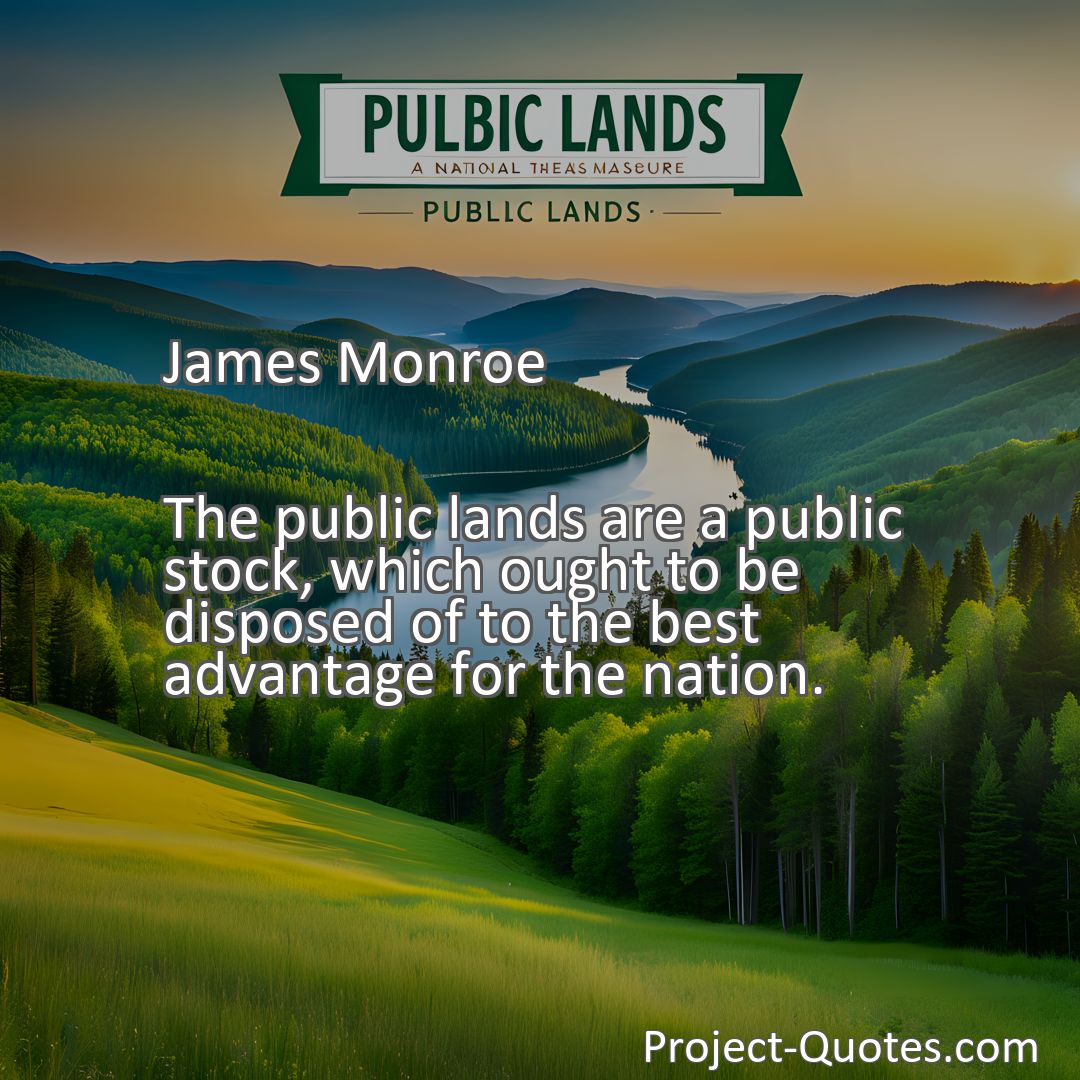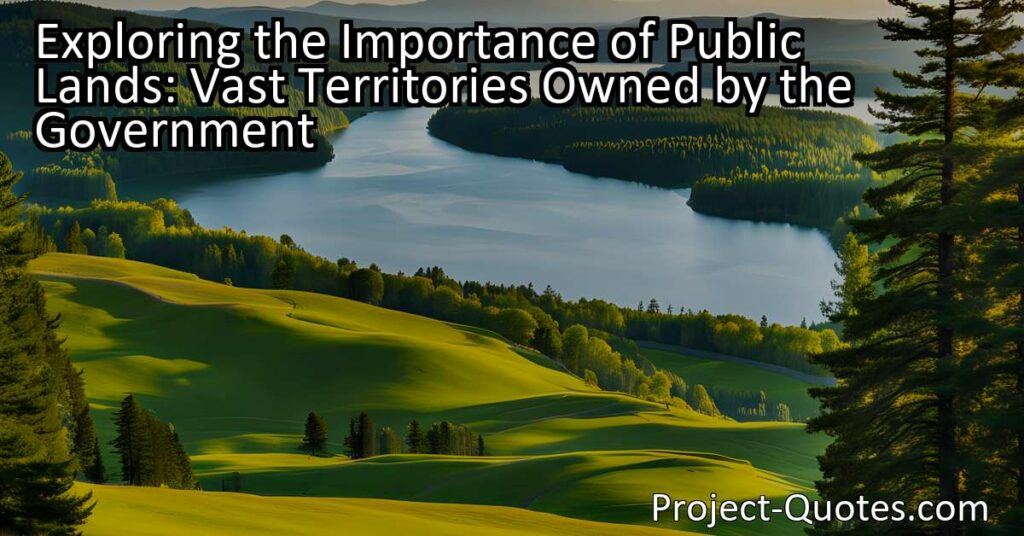The public lands are a public stock, which ought to be disposed of to the best advantage for the nation.
James Monroe
Public lands encompass vast territories owned by the government and are accessible to all citizens. These lands offer diverse natural environments, provide recreational opportunities, support biodiversity, boost local economies, and preserve cultural heritage. Managing and utilizing public lands effectively is crucial for the well-being and prosperity of the nation.
Table of Contents
Meaning of Quote – The public lands are a public stock, which ought to be disposed of to the best advantage for the nation.
Public lands play a significant role in society as they are considered a valuable resource that belongs to all citizens. James Monroe, an influential figure in American history, once stated, “The public lands are a public stock, which ought to be disposed of to the best advantage for the nation.” This quote emphasizes the importance of effectively managing and utilizing public lands for the benefit of the entire country. In this essay, we will explore the concept of public lands, discuss their various uses, and highlight the impact they have on both individuals and the nation as a whole.
Public lands encompass vast territories owned by the government and are accessible to all citizens. These lands are not privately owned and are managed by governmental agencies such as the National Park Service, Bureau of Land Management, and U.S. Forest Service. The United States has numerous public lands, including national parks, forests, wildlife refuges, and monuments. From the rugged landscapes of Yellowstone National Park to the pristine beaches of the Outer Banks, public lands offer diverse natural environments that provide opportunities for recreation, conservation, and economic growth.
One of the primary purposes of public lands is to provide recreational opportunities for individuals and families. National parks, for example, are not only scenic landscapes but also serve as outdoor classrooms for visitors of all ages. They offer hiking trails, camping sites, and educational programs that allow people to appreciate the beauty of nature while learning about history, wildlife, and conservation. By promoting outdoor activities and healthy lifestyles, public lands contribute to the physical and mental well-being of individuals.
Furthermore, public lands serve as vital habitats for a wide array of plant and animal species. These areas are designated as protected spaces to prevent habitat destruction and preserve biodiversity. Many public lands function as wildlife refuges or sanctuaries, providing essential breeding grounds for endangered species and a safe haven for migratory birds. By conserving these habitats, public lands play a crucial role in maintaining ecosystem balance and preventing the extinction of endangered flora and fauna.
Public lands also offer economic benefits to local communities and the nation as a whole. They attract tourists from near and far, boosting the economy through visitor spending on accommodations, dining, and recreational activities. For example, national parks alone generate billions of dollars in revenue each year, stimulating local economies and supporting small businesses. Additionally, public lands contribute to the growth of outdoor recreation industries such as hiking, fishing, and wildlife photography, creating job opportunities and generating income.
Moreover, public lands are often rich in natural resources such as timber, minerals, and energy. Responsible extraction and utilization of these resources can have significant economic advantages for the nation. For instance, timber harvested from public lands supports the wood products industry, providing materials for construction, furniture manufacturing, and paper production. Similarly, the mining of minerals and the extraction of oil and gas can contribute to the nation’s energy independence and overall economic prosperity. However, it is essential to strike a balance between resource extraction and conservation to ensure that public lands are sustained for future generations.
In addition to their recreational and economic value, public lands also hold cultural significance for many Americans. These lands often contain significant historical sites, sacred places, and artifacts that represent the country’s diverse heritage. For example, Mesa Verde National Park preserves the Ancestral Puebloan cliff dwellings and provides valuable insights into indigenous cultures that thrived in the region centuries ago. By protecting and maintaining these cultural resources, public lands foster an appreciation for our collective history and promote cultural understanding and respect.
While public lands offer numerous benefits, their management is not without challenges. Funding shortages, illegal activities, and environmental threats are just a few of the issues that agencies responsible for public land management face. To maintain the health and sustainability of these lands, it is crucial to prioritize conservation efforts, enhance public education and awareness, and enforce regulations effectively. Additionally, ensuring public access for all individuals, regardless of age, ability, or socioeconomic status, is essential to promote inclusivity and equal opportunities to enjoy the benefits of public lands.
In conclusion, public lands are a valuable resource that belongs to every citizen. James Monroe’s statement that “The public lands are a public stock, which ought to be disposed of to the best advantage for the nation” underscores the significance of managing these lands effectively for the benefit of all. From providing recreational opportunities and preserving biodiversity to supporting local economies and safeguarding cultural heritage, public lands play a crucial role in the overall well-being and prosperity of the nation. By recognizing their value and working together to overcome challenges, we can ensure that these lands continue to thrive and provide benefits for future generations.
I hope this quote inspired image brings you hope and peace. Share it with someone who needs it today!


